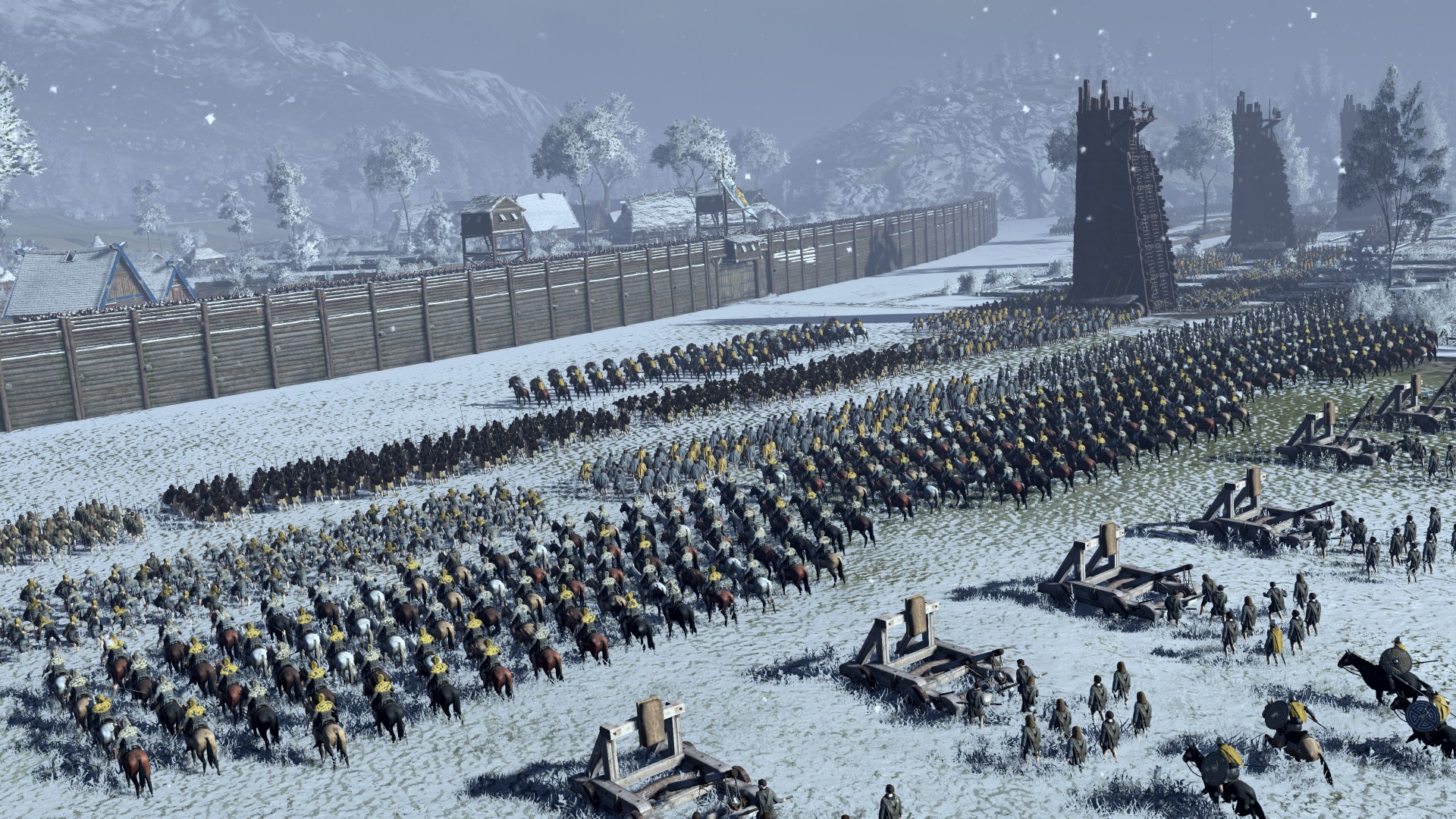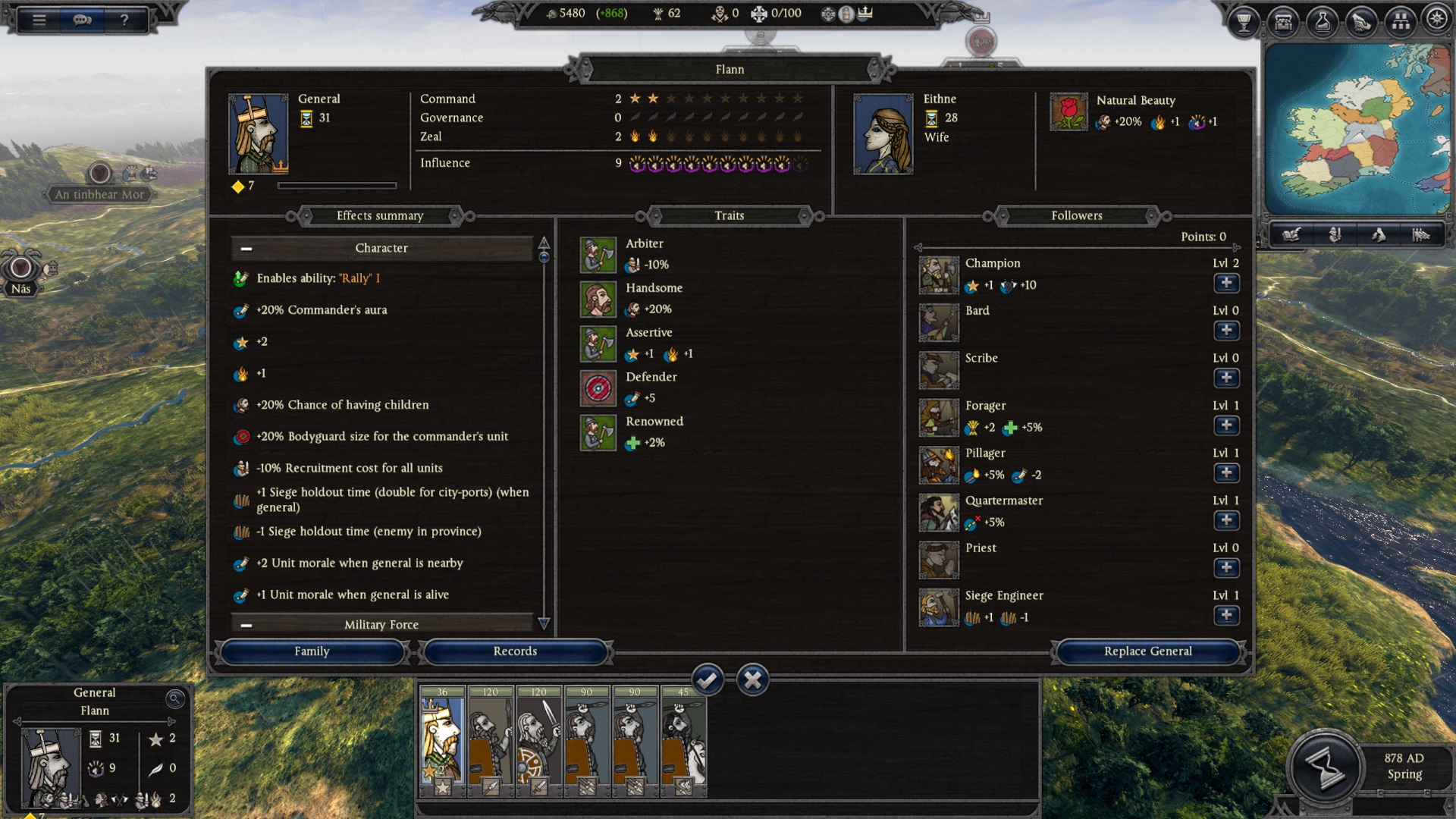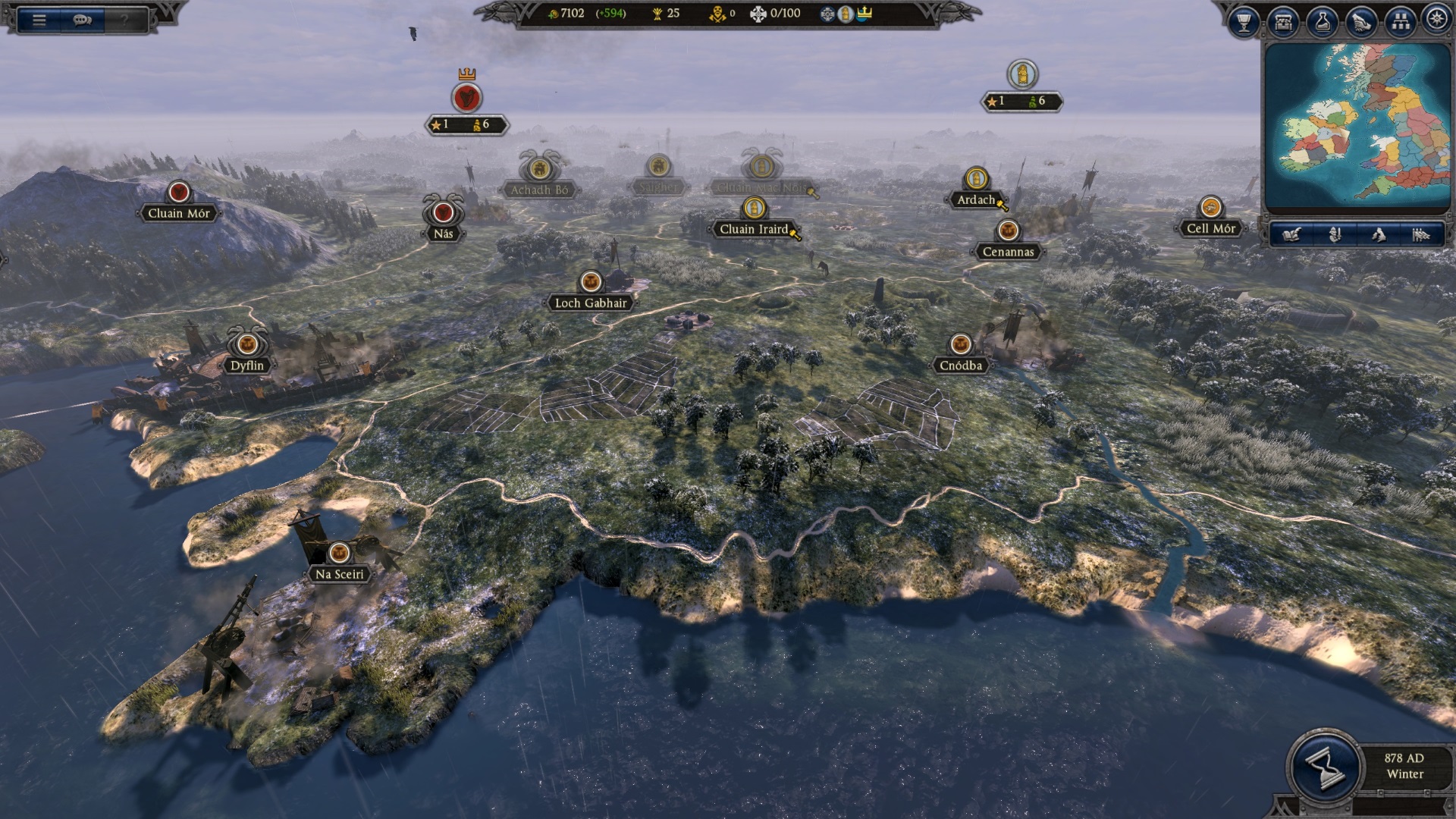A First Look At 'Total War Saga: Thrones Of Britannia'
After spending some time in the Warhammer universe, Creative Assembly announced a return to historical-based titles when it revealed Thrones of Britannia last year. However, the studio put the game under its new Total War Saga banner, which will put the spotlight on a smaller, yet more focused portion of history. But don’t think of it as just another Total War game--based on what we were told by the studio, Thrones of Britannia will give players a chance to experiment with new mechanics and changes to existing features.
War And Peace
According to development communications manager Al Bickham, Total War Saga: Thrones of Britannia takes place in the late 800s. The Viking invasion of Britain is at its end, and multiple factions now have a foothold throughout the country. If this were another Total War title, you would just pick a faction and then slowly build an army to conquer the British Isles. However, that won’t be the case this time around. Some factions, like the Irish, seek to expand their cultural and religious influence while the British focus on growing their market-based economy. This means that there are now multiple ways to claim victory. You can win through Fame by using your faction’s specialization bonuses; a Kingdom victory requires that you shepherd your empire through a series of Event and Dilemma scenarios (more on that later); or you can go through the traditional route and attempt a Conquest campaign. Creative Assembly also hinted at a fourth method, the Ultimate Victory, but it didn’t reveal any specifics on the prerequisites to trigger it.
The multi-victory approach means that the developers changed some basic mechanics. In terms of warfare, you won’t need to build specific buildings to create different types of military units. This means that you can recruit additional troops from any settlement. If you want to create more advanced units, you’ll have to unlock them by researching new technology. In some cases you’ll also have to meet a few prerequisites to unlock some nodes in the tech tree.
Warmongering generals will also have to deal with a new War Fervor gauge. Bickham described it as a gauge bar that you will need to constantly monitor. At the beginning of your war campaign your citizens will support your combat actions, and you’ll receive bonus stats for your army. If your war takes too long, public opinion will change and you’ll begin to see the Fervor gauge slide into the negative zone, which will provide negative effects to your forces. In short, you’ll have to constantly balance your time between war and peace if you want to take all of England.
Just like the combat, attempting to win with the new victory types means that you’ll have to deal with new features. Similar to military units, specialized buildings are unlocked through research, and you’ll have the ability to upgrade them in the latter stages of the game. For instance, the Irish can upgrade a church to a monastery and then eventually transform it into a grand cathedral to continue the spread of religion.
Bickham also said that Events and Dilemma situations will give you an opportunity to boost your specialization score even further. An example of this is the Fair of Tailtiu, an Irish specific event that occurs every three years in the summer. You’ll need plenty of gold to organize the event, but it provides a massive advantage to your diplomacy efforts and increases your religious influence. Some of these scenarios will also appear as a result of your choices in past situations so make sure you think wisely before making any major decisions.
Empire Management
When you’re not at war, you’ll have to attend to the needs of your growing kingdom, which is split into multiple provinces. Each of these areas contains a major city as well as minor settlements. In terms of production, Creative Assembly simplified the hierarchy so that you can only construct buildings, manage the local economy, set up trade routes in the cities. The surrounding towns and villages will then focus on resource gathering and production. You can still set up additional buildings in these settlements, but you won’t have as many choices for construction compared to the city.
Get Tom's Hardware's best news and in-depth reviews, straight to your inbox.
These changes make the management process easier, but the new structure can also work to the enemy’s advantage. Hostile troops can cut off supply lines to your cities by taking over the settlements, which in turn will slow down production. Bickham said these changes weren’t just for the sake of easier management. The alteration is supposed to mimic the setup of major cities and towns during the Feudal Ages.
Bickham said that fans loved the Total War: Warhammer games because of the stories generated through each faction’s characters. Creative Assembly is trying to make lightning to strike in the same place twice by adopting a similar character development process in Thrones of Britannia. In addition to allocating major characters to roles based on Zeal, Command, and Governance stats you’ll also have look at their traits and followers. Traits make your character unique, but its followers will be a major deciding factor in terms of their role in your kingdom. These followers don’t appear in-game as actual people, but as special bonuses or abilities for a character. One example is the Quartermaster follower, who reduces the upkeep costs for troops and allows for faster movement across the map. One thing that won’t be included in the game are agents, but some of its abilities are included in your characters.
As your characters progress throughout the game, you’ll also have to give them civil or military positions to keep them happy and loyal. You can also perform other actions that will affect their loyalty, such as promoting and demoting their rank, punishing those who failed a mission, or placing them in a strategic marriage.
Peacetime negotiations are also easier to deal with in Thrones of Britannia. If you can establish a route with another faction, trade agreements will automatically take effect. On the subject of opposing factions, Bickham noted that the A.I. for the game will make decisions that are better suited towards their assigned traits. This doesn’t mean that they won’t pull a surprising move at any time, but they should be more predictable and easier to deal with throughout the campaign.
The 'Total War' Experiment
These gameplay features will undoubtedly have some fans excited, but there will also be a group of diehards that won’t like the plethora of alterations. In the eyes of Creative Assembly, Thrones of Britannia is a test bench to experiment with potential changes to the Total War formula.
“[Thrones of Britannia] is not a grand-scale, multi-year development project,” Bickham said. “...it lets us play around with things in a low-risk way. We take different approaches [to mechanics] and those approaches are defined by different things for each Total War game.”
When the final version is released, Creative Assembly will looks to the forums and the series’ subreddit to gauge player reaction and receive feedback on the many changes. Feel free to draw up your battle plans now because you won’t have to wait long to try them out. Total War Saga: Thrones of Britannia will be available to all on April 19.
| Name | Total War Saga: Thrones of Britannia |
|---|---|
| Type | Strategy |
| Developer | Creative Assembly |
| Publisher | Sega |
| Platforms | PC |
| Where To Buy | Steam |
| Release Date | April 19, 2018 |
Rexly Peñaflorida is a freelance writer for Tom's Hardware covering topics such as computer hardware, video games, and general technology news.
-
vincent67 it's 2 games in one:Reply
- Turned based sim like Civ but limited to a specific period
- Real time battle


